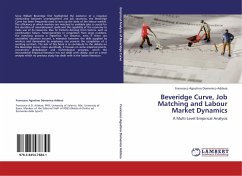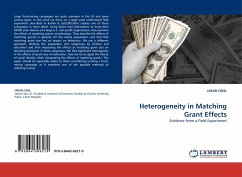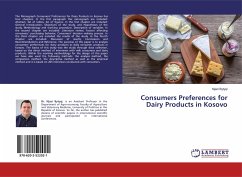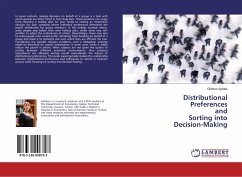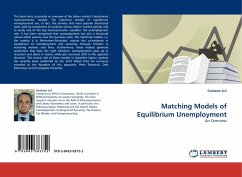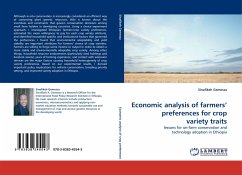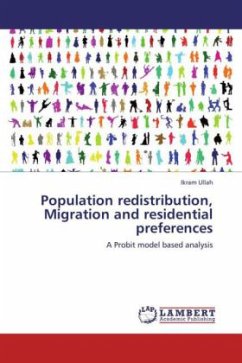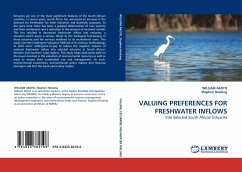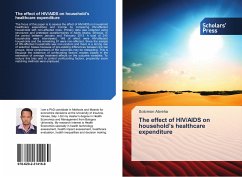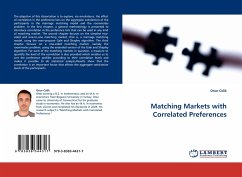
Matching Markets with Correlated Preferences
Versandkostenfrei!
Versandfertig in 6-10 Tagen
32,99 €
inkl. MwSt.

PAYBACK Punkte
16 °P sammeln!
The objective of this dissertation is to explore, via simulations, the effect of correlation in the preference lists on the aggregate satisfaction of the participants in the marriage matching model and the roommates problem. In the first chapter, a general methodology is presented to introduce correlation in the preference lists that can be used in any kind of matching market. The second chapter focuses on the simplest two-sided and one-to-one matching market, that is, a marriage matching model, using the men-propose Gale and Shapley algorithm. The third chapter focuses on a one-sided matching...
The objective of this dissertation is to explore, via simulations, the effect of correlation in the preference lists on the aggregate satisfaction of the participants in the marriage matching model and the roommates problem. In the first chapter, a general methodology is presented to introduce correlation in the preference lists that can be used in any kind of matching market. The second chapter focuses on the simplest two-sided and one-to-one matching market, that is, a marriage matching model, using the men-propose Gale and Shapley algorithm. The third chapter focuses on a one-sided matching market, namely the roommates problem, using the extended version of the Gale and Shapley algorithm. For each of the matching markets in question, a measure to quantify the level of the correlation is also provided which enables us to sort the preference profiles according to their correlation levels and makes it possible to do statistical analysis.Results show that the correlation is an important factor that affects the aggregate satisfaction levels of the participants.



